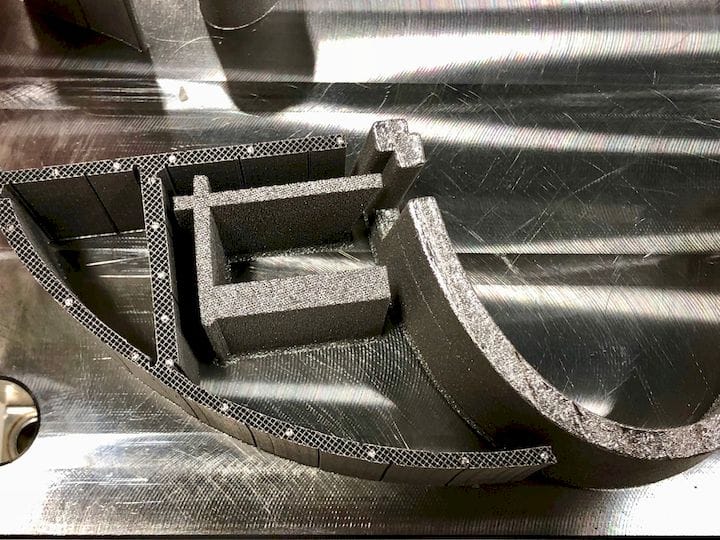![A sample metal 3D print by Precision ADM [Source: Fabbaloo]](https://fabbaloo.com/wp-content/uploads/2020/05/image-asset_img_5eb0a5da08369.jpg)
Metal 3D print service Precision ADM announced they’ve completed another important certification.
Specifically, for their Titanium 3D printing operation, they’ve obtained AM process validation for Installation Qualification (IQ), Operational Qualification (OQ) and baseline Performance Qualification (PQ), with the help of EOS consultants Additive Minds.
Some readers may find this a “ho hum” story, as it isn’t a flashy new machine, whiz-bang new 3D printing process or magic material. It’s a certification, but those are oh-so important for industry.
Precision ADM CEO Martin Petrak explains:
“We recognize the importance of applying quality metrics to the Direct Metal Laser Sintering (DMLS) process. EOS Additive Minds and their great expertise helped us to overcome the challenges of validation in AM. Together we analyzed the potential risks and we have invested in designing and completing a robust end-to-end validation of our metal additive process, so that we can assure our customers of reliable, repeatable manufacturing results.”
EOS Additive Minds consultant Michael Kowal explains the importance of the achievement:
“Precision ADM now has the production capabilities and the documentation in place so that a medical or aerospace customer can focus on their final part, having confidence that they will get high-quality parts that fulfill all current industry regulations.”
The company has developed a white paper explaining how it all works, which you can find here.
![Precision ADM’s now-certified Titanium 3D printer [Source: Fabbaloo]](https://fabbaloo.com/wp-content/uploads/2020/05/image-asset_img_5eb0a5da63e9c.jpg)
Imagine yourself being a part buyer within an industry requiring high quality standards, and facing an array of possible 3D print services, all bidding for your business. Which one do you choose? Most of them may not have the required certifications and thus your expensive purchased part will literally be unusable for your business.
In some cases it’s possible some companies have simply written off 3D printing as an option because of the lack of certified providers. Even if there is one provider, they may need two or more to engage in a competitive bid process.
The availability of a certified provider is like gold: it turns on markets like nothing else, and those markets are usually big, with plenty of work to get done.
In the end I suspect as more metal 3D print services obtain certifications, those that don’t will eventually be forced out of the business, or at least be pushed to service buyers with less stringent requirements, and those typically don’t have the high margins of other industries.
Via PRWeb











Aerosint and Aconity have proven out their work in multi-metal powder deposition 3D printing.